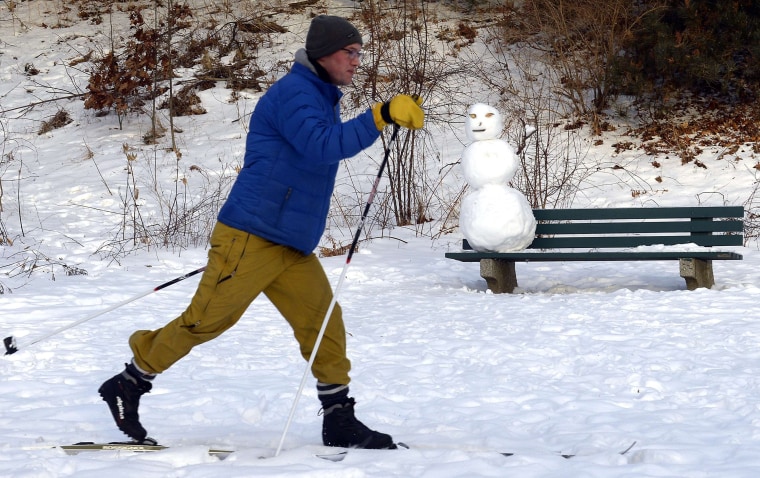1. Statements about climate trends must be based on, er, trends. Not individual events or occurrences. Weather is not climate, and anecdotes are not statistics. 2. Global warming is actually expected to increase "heavy precipitation in winter storms," and for the Northern Hemisphere, there is evidence that these storms are already more frequent and intense, according to the draft U.S. National Climate Assessment. 3. Antarctica is a very cold place. But global warming is affecting it as predicted: Antarctica is losing ice overall, according to the latest report of the Intergovernmental Panel on Climate Change. However, sea ice is a different matter than land-based or glacial ice. Antarctic sea ice is increasing, and moreover, the reason for this may be climate change! (For more, read here.)
Winter, climate, and what's truly 'laughable'
Every winter, like clockwork, far-right yahoos start arguing, "It's cold in winter, therefore global warming can't be real." And every winter, they're wrong.

Every year, much of the world experiences a phenomenon known as "seasons." For many Americans, this means higher temperatures in the summer and lower temperatures in the winter. What does this have to do with global climate change? Not a whole lot.
But just as one season leads to another, the transition from fall to winter brings out the worst in too many conservatives. Indeed, it seems every winter, like clockwork, far-right yahoos start arguing, "It's cold in winter, therefore global warming can't be real." Sen. James Inhofe (R-Okla.), playing his usual role, insisted yesterday that freezing temperatures in much of the country is obviously proof that climate science itself is "laughable."
Something in this debate is laughable, but I'm afraid it isn't the science.
Inhofe is hardly alone. As Chris Mooney noted the other day, plenty of notable figures on the right -- Rush Limbaugh, Rep. John Fleming (R-La.), Donald Trump, Drudge, Erick Erickson, et al -- pushed the same argument. Fox Business' Stuart Varney went so far as to say, "[W]e're looking at global cooling, forget this global warming."
And so we are forced once more to remind conservatives that cold winter weather in our part of the planet does not disprove global warming. Mooney patiently explained:
Brad Plumer added that temperatures in the United States do not necessarily reflect temperatures on the entire planet. While many Americans had to bundle up in December 2013, preliminary data suggests last month "was tied for the 2nd-hottest December on record since 1979, the beginning of satellite measurements," and global average temperatures for all of 2013 "are expected to be among the 10 highest since 1850."
You will no doubt receive an all-caps email soon from your wacky uncle who watches Fox News all day, perhaps with a picture of icicles attached, intended to serve as proof that climate change is a hoax. Gently remind him that winter weather in one country in January isn't evidence of much, and if he's interested in relying on evidence as part of the debate, there's voluminous scientific data for him to check out that goes beyond looking out a window.